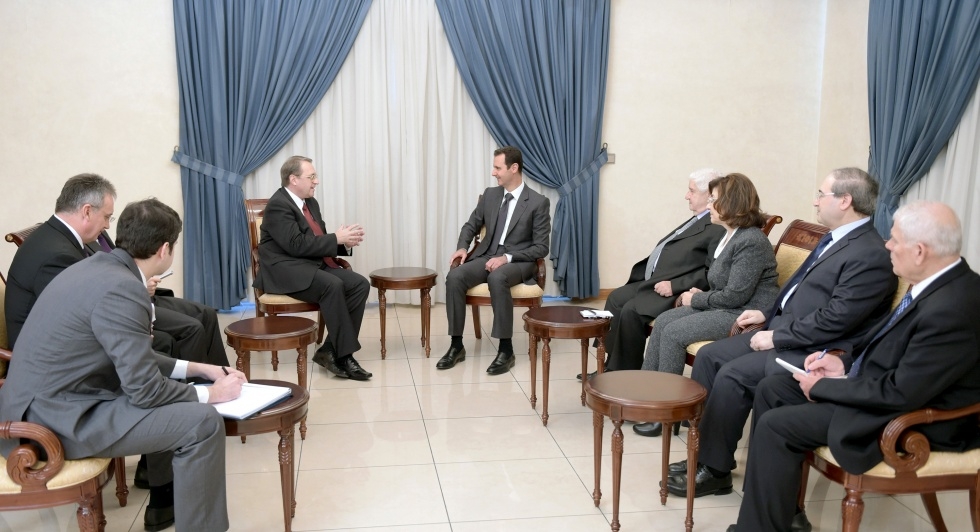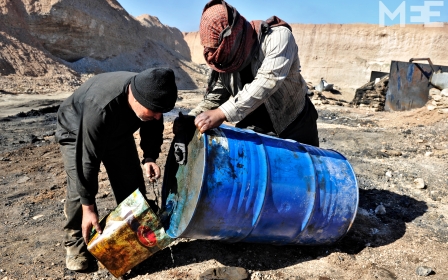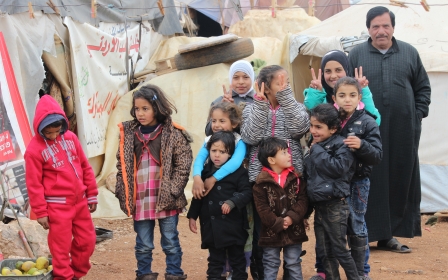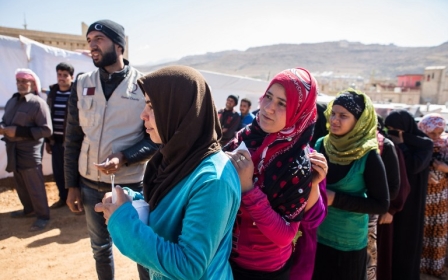Russia mediates to host Syria-US meeting

President Bashar al-Assad on Wednesday met a top Russian envoy who said Moscow is hoping to relaunch peace talks for the war-torn country and could host a Syria-US meeting.
After meeting Assad, Russian Deputy Foreign Minister Mikhail Bogdanov was quoted as saying that he "was in contact with our American partners."
"If Syrians want to meet in Moscow, then we will discuss this issue with the US side and others," Bogdanov was quoted as saying by the Russian news agency Ria Novosti.
"We have proposed that the Syrians come to Moscow to discuss political possibilities to resolve the crisis," he added.
Russia is pressing a bid to restart Syria talks that would include meetings between government officials and members of the opposition.
Assad said he backed the efforts of Syria's Russian ally.
Syria backs "positively the efforts by Russia to find a solution to the crisis," Assad said, quoted by the state news agency SANA.
"Russia respects the sovereignty of states and international law," he added during the meeting with Bogdanov.
The Russian foreign ministry said Assad and Bogdanov also discussed on "consolidating efforts in the fight against the Islamic State group and other terrorist organisations."
Bogdanov's visit to Damascus follows meetings he held with Syrian opposition groups in Lebanon and Turkey.
"In Istanbul, I met with Syrian opposition members," Bogdanov said as he arrived at his Damascus hotel.
"We want to reach an agreement on many issues with the Damascus authorities," he added.
Bogdanov informed Assad on the outcome of these meetings, SANA reported.
In November, Russia held separate meetings in Moscow with a top opposition leader, Ahmad Moaz al-Khatib, and with a delegation headed by Syrian Foreign Minister Walid Muallem.
Last week, Khatib called for direct talks with Assad's government to try to end the war.
US strategy under attack by lawmakers
Meanwhile in the US, the Obama administration was under fire again Wednesday, accused of a "flawed" strategy to help end the war in Syria, as a top official admitted training for moderate rebels will only begin next year.
A day after US Secretary of State John Kerry sparred with senators, lawmakers in the House rounded on special envoy to Iraq Brett McGurk for a slow and inadequate response to the threat posed by Islamic State militants in Iraq and Syria.
"After four months of the US-led air campaign in Iraq and in Syria, ISIS still controls essentially the same amount of territory that it did in the summer, and one of the reasons for this, in my opinion, is the limited nature of this effort," said representative Ed Royce, chairman of the House foreign affairs committee.
US officials have said that some 1,100 airstrikes have been carried out by the US-led coalition since September.
But in the 2003 conflict against Iraqi leader Saddam Hussein, "we had a thousand sorties per day," Royce said, adding Iraqis and Kurds fighting IS had also been denied the "heavy equipment" they need.
In Syria, where the US plan is to train up the moderate opposition, "these Syrian groups have suffered from dire ammunition shortages in the last several weeks," Royce said.
McGurk defended the US strategy however, and stressed that Washington hoped to begin training the first of about 5,000 Syrian opposition rebels in March 2015.
"Part of the reason is because of the vetting standards and that we're being very careful with this. But we're not sitting on our hands," McGurk insisted, adding the training would take about a year.
But representative Ted Poe argued: "What are we doing in Syria right now? People are dying in Syria and the cavalry's not showing up till 2016."
"So March of 2016 then we have a plan, then we have fighters then we send them to Syria. There's no telling what ISIS can do in that year or however many months it is," Poe said.
"Does the United States have some other strategic plan, other than arming these folks who aren't going to show up till 2016, dropping bombs that is marginal whether it's been successful, helping with military aid to some of these coalition countries?"
"Yes, the train and equip program is just one small element in an overall campaign," McGurk shot back.
"This is a multi-year campaign. Phase one is Iraq. What we're doing in Syria right now is degrading ISIL's capacity."
Kerry on Tuesday called on senators to give the US administration a new war powers authorization to continue the fight against IS.
But he was heavily criticized by some of the senators, including John McCain, who said that the Obama administration was "doing nothing" to stop Assad from slaughtering his people.
Saudi contributes $52 million to Syrian food appeal
Meanwhile, US-ally Saudi Arabia contributed $52 million (42 million euros) in new funds to help feed Syrian refugees after the World Food Programme launched an urgent appeal last week, the UN agency said Wednesday.
WFP's Executive Director Ertharin Cousin said the programme was "extremely grateful" for the aid, which brought the total raised to $88.4 million.
The kingdom pledged an additional $42 million for refugees in Ethiopia and $10 million for those in Kenya, the WFP said, amounting to a total of $104 million.
After the WFP appeal, Denmark, a big aid donor, had criticised wealthy Gulf states for failing to honour their promises on humanitarian aid for Syrians.
The WFP was forced last week to suspend the delivery of food vouchers for almost 1.7 million Syrians who have fled to Jordan, Lebanon, Turkey and Egypt.
It launched an unprecedented campaign on social media to raise $64 million to cover the month of December.
The additional funds raised will help cover its needs going into January.
About $1.8 million was donated by individuals and private sector donors, and the rest by countries.
These include $10.2 million from Norway, $7.5 million from the Netherlands, $6.2 million from the European Union, $5.4 million from Germany, $2.1 million from Switzerland, $2 million from Qatar, $1.1 million from Ireland and $138,000 from Belgium.
Thanking all the donors, Cousin warned that funding would still be needed next year.
"As this increasingly 'hand-to-mouth' operation moves into winter, we are counting on our donors not to lose sight of the needs of these vulnerable people," she said.
"We are already focused on January, when the needs will be just as great."
Stay informed with MEE's newsletters
Sign up to get the latest alerts, insights and analysis, starting with Turkey Unpacked
Middle East Eye delivers independent and unrivalled coverage and analysis of the Middle East, North Africa and beyond. To learn more about republishing this content and the associated fees, please fill out this form. More about MEE can be found here.




